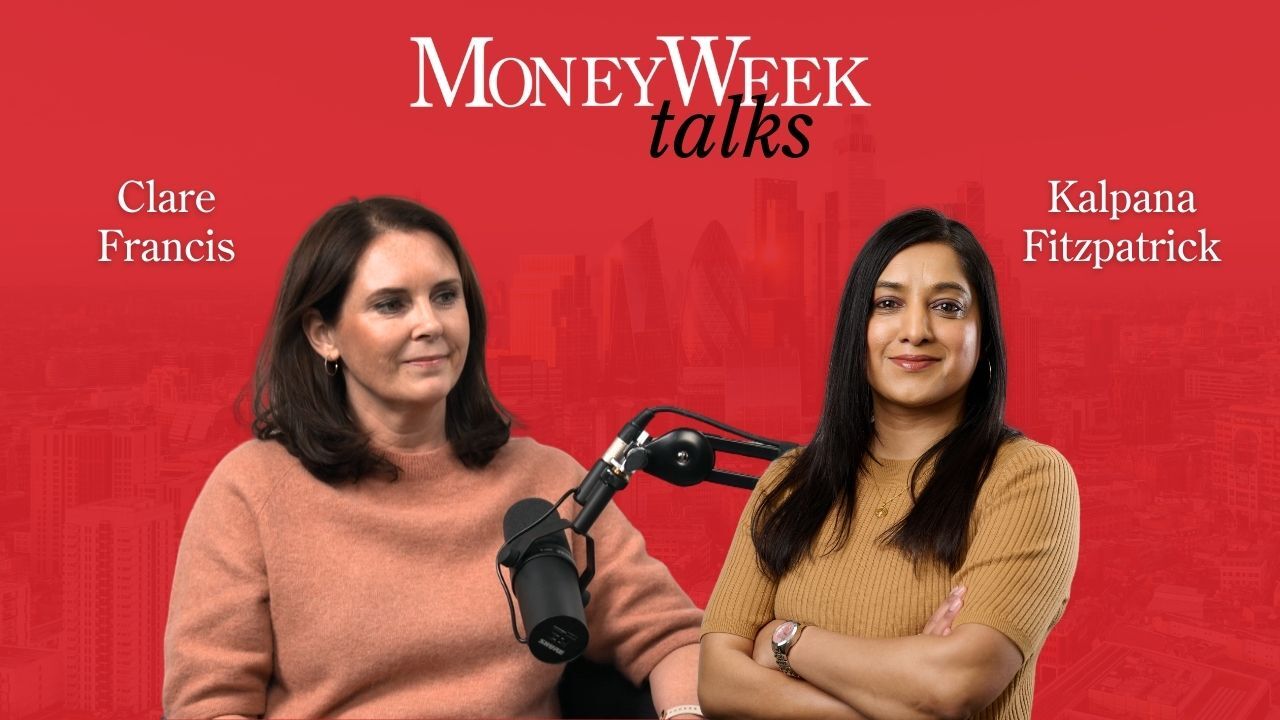The UK’s bailout of the self employed comes with a hidden catch
The chancellor’s £6.5bn bailout of the self employed is welcome. But it has hidden benefits for the taxman, says Merryn Somerset Webb.


Get the latest financial news, insights and expert analysis from our award-winning MoneyWeek team, to help you understand what really matters when it comes to your finances.
You are now subscribed
Your newsletter sign-up was successful
Want to add more newsletters?
Another whopper of a package. Yesterday the chancellor introduced a range of new measures for the self employed to the tune of around £6.5bn (or 0.3% of GDP on numbers from Capital Economics) – to help them through the tricky months ahead.
The idea is to offer taxable grants of 80% of previous income up to £2,500 a month to those already in the self-assessment system and with an income below £50,000 (anyone over that is considered able to fend for themselves).
The income used for the calculation will be based on an average of the income declared in the last three tax years. If you haven’t got three years of tax returns it will be based on whatever you have.
Try 6 free issues of MoneyWeek today
Get unparalleled financial insight, analysis and expert opinion you can profit from.

Sign up to Money Morning
Don't miss the latest investment and personal finances news, market analysis, plus money-saving tips with our free twice-daily newsletter
Don't miss the latest investment and personal finances news, market analysis, plus money-saving tips with our free twice-daily newsletter
This looks like good news for some of the self employed – particularly as you can claim the grant even if you continue to work. It isn’t, of course going to make everyone happy – being based on income not turnover, it will mean that those with high expenses might not be able to cover all their fixed expenses and have excess income from the grant.
Also worrying for some will be that the scheme won’t be in place until June – although the well organised can live off their tax savings until then (July’s payments are to be delayed six months). Finally it’s not great news for the newly self employed – if they can’t show a tax return with an income on it, they aren’t going to get paid.
However there is a lifeline in here for those who have perhaps avoided filing tax returns in the past (the UK shadow economy makes up about 10% of GDP – useful piece on it here in the Telegraph). You will now get four weeks to set things straight – to file a tax return on the back of which the HMRC can work out what kind of grant you might be entitled to. If you aren’t in the system you can’t get paid.
There is a hint of never letting a good crisis go to waste in this – once the tax returns required to access the grants have been filed, HMRC may keep a beady eye on whether those same self-employed workers file again in 2021 and 2022.
We have long expected a major crackdown on the tax avoiding part of the cash economy – but we expected it to come about more via the slow death of cash rather than by a grant for tax return trade off. It will be fascinating to see how many new self-assessment tax returns turn up in the next four weeks.
Get the latest financial news, insights and expert analysis from our award-winning MoneyWeek team, to help you understand what really matters when it comes to your finances.

-
 Are money problems driving the mental health crisis? MoneyWeek Talks
Are money problems driving the mental health crisis? MoneyWeek TalksPodcast Clare Francis, savings and investments director at Barclays, speaks about money and mental health, why you should start investing, and how to build long-term financial resilience.
-
 Pensioners ‘running down larger pots’ to avoid inheritance tax as rule change looms
Pensioners ‘running down larger pots’ to avoid inheritance tax as rule change loomsChanges to inheritance tax (IHT) rules for unused pension pots from April 2027 could trigger an ‘exodus of large defined contribution pension pots’, as retirees spend their savings rather than leave their loved ones with an IHT bill.
-
 UK wages grow at a record pace
UK wages grow at a record paceThe latest UK wages data will add pressure on the BoE to push interest rates even higher.
-
 Trapped in a time of zombie government
Trapped in a time of zombie governmentIt’s not just companies that are eking out an existence, says Max King. The state is in the twilight zone too.
-
 America is in deep denial over debt
America is in deep denial over debtThe downgrade in America’s credit rating was much criticised by the US government, says Alex Rankine. But was it a long time coming?
-
 UK economy avoids stagnation with surprise growth
UK economy avoids stagnation with surprise growthGross domestic product increased by 0.2% in the second quarter and by 0.5% in June
-
 Bank of England raises interest rates to 5.25%
Bank of England raises interest rates to 5.25%The Bank has hiked rates from 5% to 5.25%, marking the 14th increase in a row. We explain what it means for savers and homeowners - and whether more rate rises are on the horizon
-
 UK inflation remains at 8.7% ‒ what it means for your money
UK inflation remains at 8.7% ‒ what it means for your moneyInflation was unmoved at 8.7% in the 12 months to May. What does this ‘sticky’ rate of inflation mean for your money?
-
 Would a food price cap actually work?
Would a food price cap actually work?Analysis The government is discussing plans to cap the prices of essentials. But could this intervention do more harm than good?
-
 Is my pay keeping up with inflation?
Is my pay keeping up with inflation?Analysis High inflation means take home pay is being eroded in real terms. An online calculator reveals the pay rise you need to match the rising cost of living - and how much worse off you are without it.